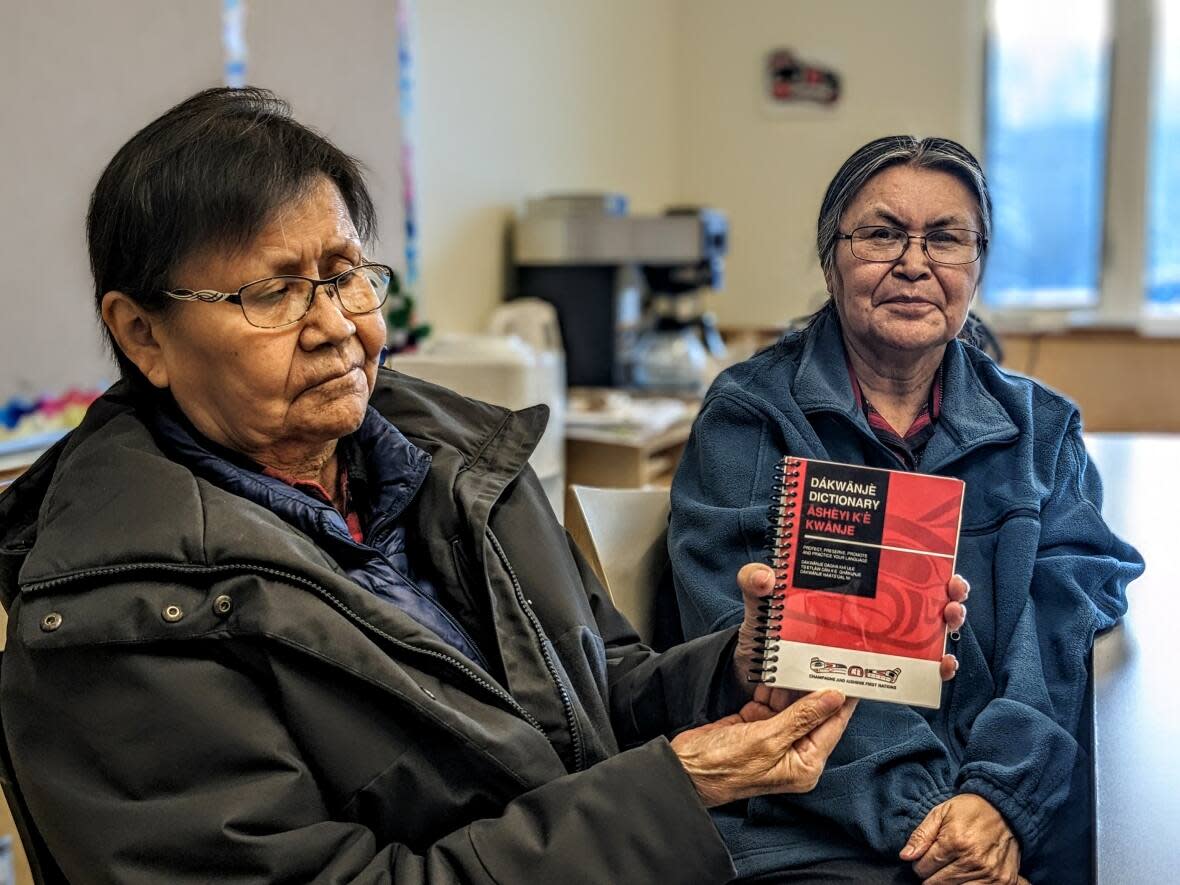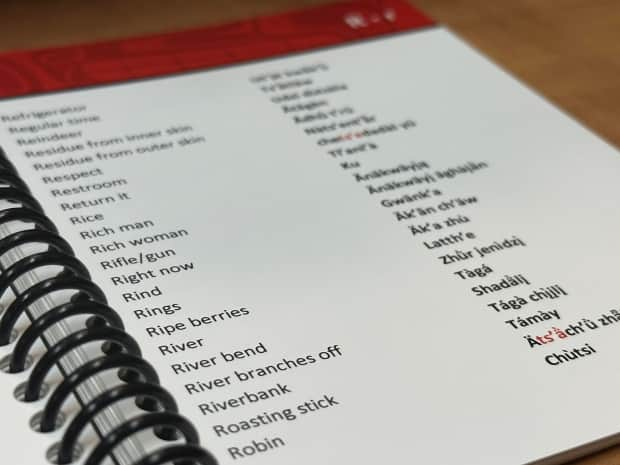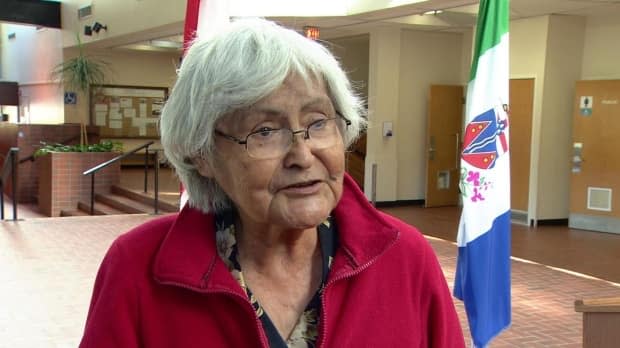Yukon sisters create Southern Tutchone dictionary

Lena Smith-Tutin and her older sister Vivian Smith don't like to dwell on the time they spent in residential schools.
Instead, the two women, members of the Champagne and Aishihik First Nations in the Yukon, found a way to reclaim their identity and culture by creating a dictionary of Southern Tutchone — the language they were forced to give up as children.
"After we finished the book and it came out, I felt really…like something lifted," Smith-Tutin said. "Lighter. So...I'm good."
Dákwänjè dictionary is a 77-page pocket-size booklet that was published in November. It contains hundreds of words translated from English to Dän k'è (Southern Tutchone).
The sisters said they started to work on the booklet back in 2015. At the time, both were language teachers for the Champagne and Aishihik First Nations, about 155 kilometres away from Whitehorse, in Haines Junction, Yukon.
About 250 copies were put together after seven years of work, with the help of their First Nation, to be handed out for free.

"You can't sell your language," Smith-Tutin said.
It's a language, both sisters explained, they had to re-learn as teenagers.
"Our oldest sister Margaret ... she's the one that re-taught us. We used to go to her classes in Whitehorse, for five days a week, and she would teach us," Smith said.
Language and family
The family's oldest sister, Margaret Workman, is known across the Yukon as one of the pioneers of the Yukon Native Language Centre. Workman has repeatedly been honoured for her contributions to literacy, including with a Council of the Federation Literacy Award in 2015.
"I used to come in a room and say, 'Hi!' And she would respond ... 'you have to answer me in Dän k'è,'" Smith recalled. "She taught us how to write it, the sounds, just like learning your ABC all over again."

When asked about the inspiration behind the dictionary, both sisters promptly credited Workman.
"She used to always say, 'go learn your language,'" Smith-Tutin said with a laugh.
Of Yukon's fourteen First Nations, the Champagne and Aishihik First Nations is one of the largest, with a membership of about 1,200 people. Only 25, however, consider Southern Tutchone as their mother tongue, according to 2021 data from Statistics Canada.
Not a single individual, according to the collected data, responded that Southern Tutchone is the language spoken most often at home.
"Elders always used to say the language is dying," Smith-Tutin said.
"So Vivian and I wanted to created something small enough that people could carry it around. Pack the words around. If they want to learn the language, they got it right there, in their pockets."
Copies of the booklet can now be found at the Da Kų Culture Centre, in Haines Junction.


